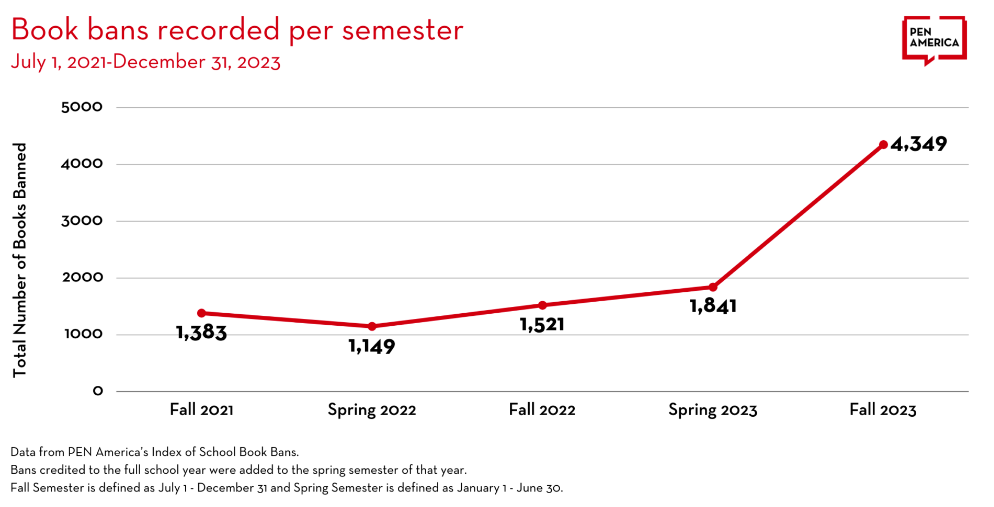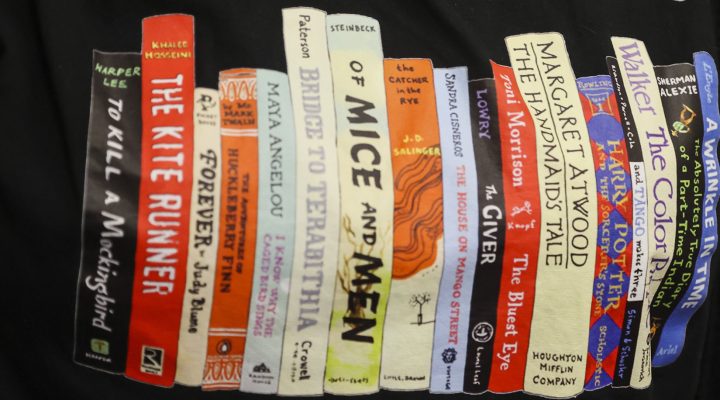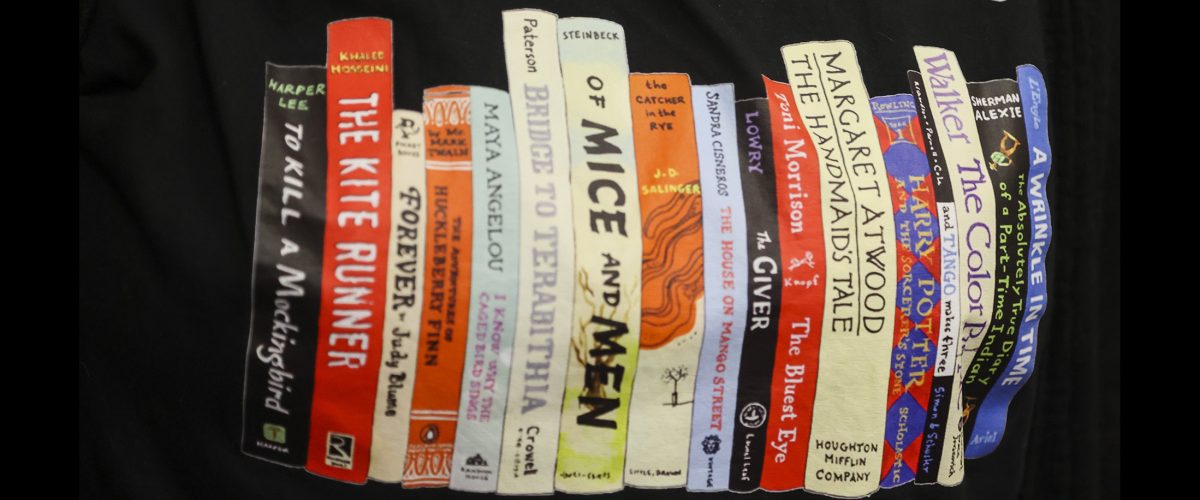Six major U.S. publishers, the Authors Guild and several authors and parents have filed a federal lawsuit to stop a new Florida law allowing public school libraries to ban books whenever a parent raises objections about sexual content.
The suit, filed in the U.S. District Court for the Middle District of Florida, argues the 2023 Florida law violates the First Amendment rights of students, authors and publishers by requiring school districts, media specialists and teachers to pull books from shelves or face loss of licensure and other penalties.
Penguin Random House, Hachette Book Group, HarperCollins Publishers, Macmillan Publishing Group, Simon & Schuster, and Sourcebooks are identified as plaintiffs in the suit along with authors Julia Alvarez, John Green, Laurie Halse Anderson, Jodi Picoult, Angie Thomas, two parents and two students.
Their action cites numerous banned titles, including Maya Angelou’s I Know Why the Caged Bird Sings, Ralph Ellison’s Invisible Man, Zora Neale Hurston’s Their Eyes Were Watching God, Aldous Huxley’s Brave New World, Toni Morrison’s The Bluest Eye, Leo Tolstoy’s Anna Karenina, Kurt Vonnegut’s Slaughter-House Five, and Alice Walker’s The Color Purple.
“These books are timeless classics, renowned for their literary value,” the lawsuit states. “Many of them have won awards or are bestsellers. They have been on the shelves of school libraries for years, and they are not remotely obscene. But Florida has required these books and others to be removed from school libraries under its broad, across-the-board, content-based mandates that forbid consideration of the books’ value.”

Author Stephen King, who is not a plaintiff in the suit, expressed his displeasure with the Florida law on X: “Florida has banned 23 of my books. What the ****?”
But Florida officials doubled down on defending the law, arguing it helps the state protect students from offensive material.
“This is a stunt. There are no books banned in Florida. Sexually explicit material and instruction are not suitable for schools,” Sydney Booker, a spokesperson for the Florida Department of Education, said in a statement to CBS News.
Florida Gov. Ron DeSantis, who has consistently dismissed what he labels “the book ban hoax,” blamed the media for creating the controversy, CBS News reported. “The media, they try to say that this is, quote, banning books, but what you have in a school, you have to make judgments about what’s appropriate or not.”
The law created with House Bill 1069 was introduced and enacted at a time when DeSantis and the Republican controlled state legislature were waging a “war on woke” through laws prohibiting the teaching of Critical Race Theory and sexual orientation or gender identity, and forbidding the use of gay or transgender language and pronouns with teachers and students.
HB 1069 placed strict limits on the confidentiality of teachers or school counselors when communicating with LGBTQ students and altered book challenge procedures, resulting in quick bans of titles considered offensive due to Black history, LGBTQ or sexual content.
The law requires any objectional material to “be removed within five school days of receipt of the objection and remain unavailable until the objection is resolved.” The district must rule on the objection but parents are allowed to appeal a district’s decision to the Florida Department of Education.
The free-speech group Pen America issued a report in April identifying Florida as the nation’s leader in book banning.
The free-speech group Pen America issued a report in April identifying Florida as the nation’s leader in book banning, with 3,135 books banned in 11 districts from 2021 through the end of 2023. Wisconsin (481), Iowa (142) and Texas (141) were next in line. The book banning movement has weaponized the term “obscenity” in going after titles with themes of sexual violence, a topic that mostly effects women and nonbinary authors, the report added.
Pen America said it documented 4,349 book ban instances nationwide in the fall of 2023 alone: “Since the current wave of book bans began in 2021, sex in books has commonly been used as grounds for removal. Objectors have described books as ‘pornographic,’ ‘disgusting’ and ‘obscene’; in August, one woman in Pennsylvania even accused school officials of ‘sexually abusing’ her granddaughter by making several book titles available.”
LGBTQ-related books have encountered especially intense scrutiny, Pen America reported. “The book banning movement has featured a widespread and consistent attack on trans students, trans stories and trans authors. At least 8% of all books banned between 2021 and 2023 featured transgender characters or narratives.”
The publishers suing the state said the law is unconstitutional given that any book can be banned without regard to its social or cultural merit.
“The list of banned books includes classics such as Brave New World by Aldous Huxley, A Tale of Two Cities by Charles Dickens, For Whom the Bell Tolls by Ernest Hemingway, and The Adventures of Tom Sawyer by Mark Twain, as well as contemporary novels by bestselling authors such as Margaret Atwood, Judy Blume and Stephen King. Among nonfiction titles, accounts of the Holocaust such as The Diary of a Young Girl by Anne Frank have been removed.”
Forbidding any topic or passage that can be construed as “sexual conduct,” the law ignores a book’s overall educational value, according to the release: “As publishers dedicated to protecting freedom of expression and the right to read, the rise in book bans across the country continues to demand our collective action. Fighting unconstitutional legislation in Florida and across the country is an urgent priority. We are unwavering in our support for educators, librarians, students, authors, readers — everyone deserves access to books and stories that show different perspectives and viewpoints.”
Related articles:
States counter growing number of book bans with book ban bans
For the love of literature: How book bans are whitewashing America | Analysis by Laura Ellis
Book challenges rose 65% in 2023, reaching ‘unprecedented heights’


